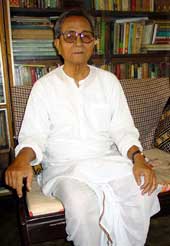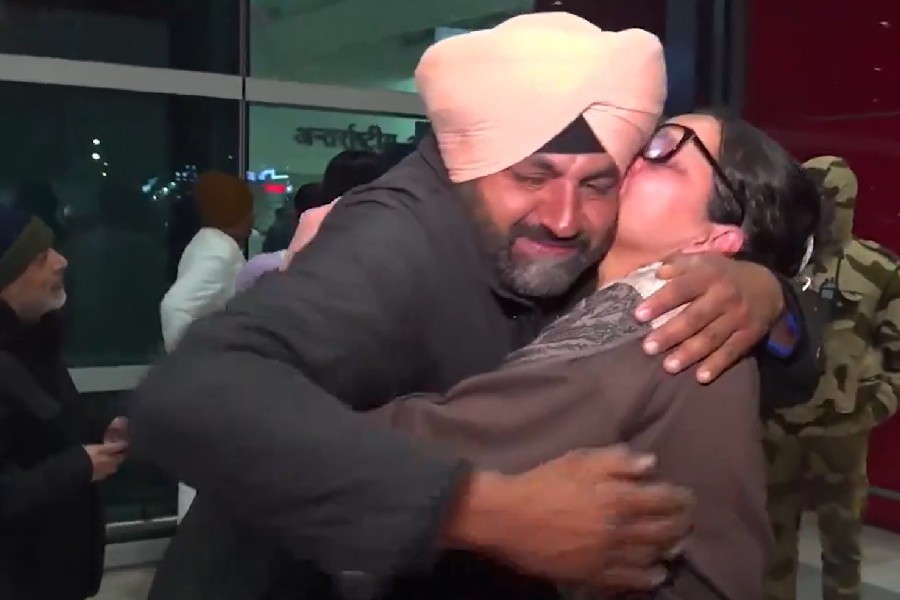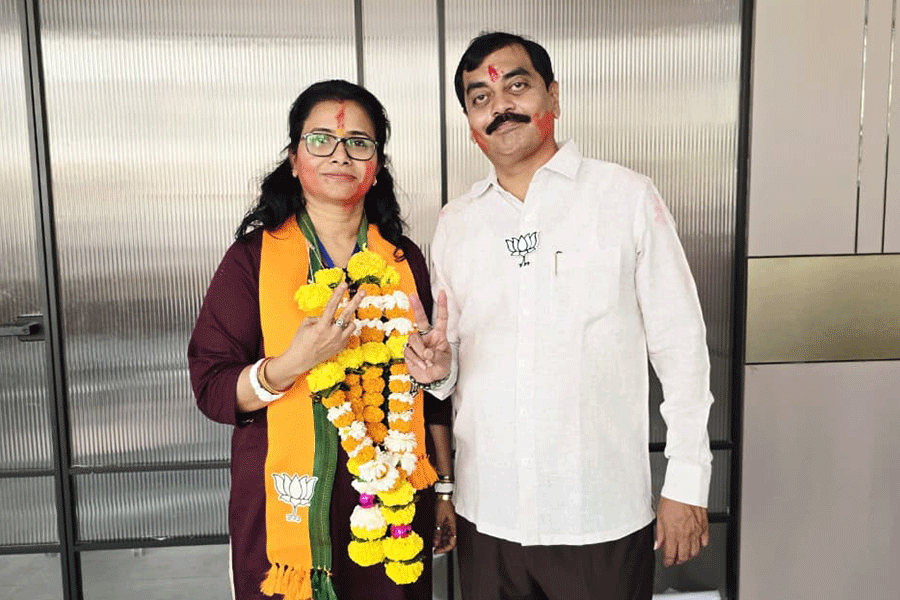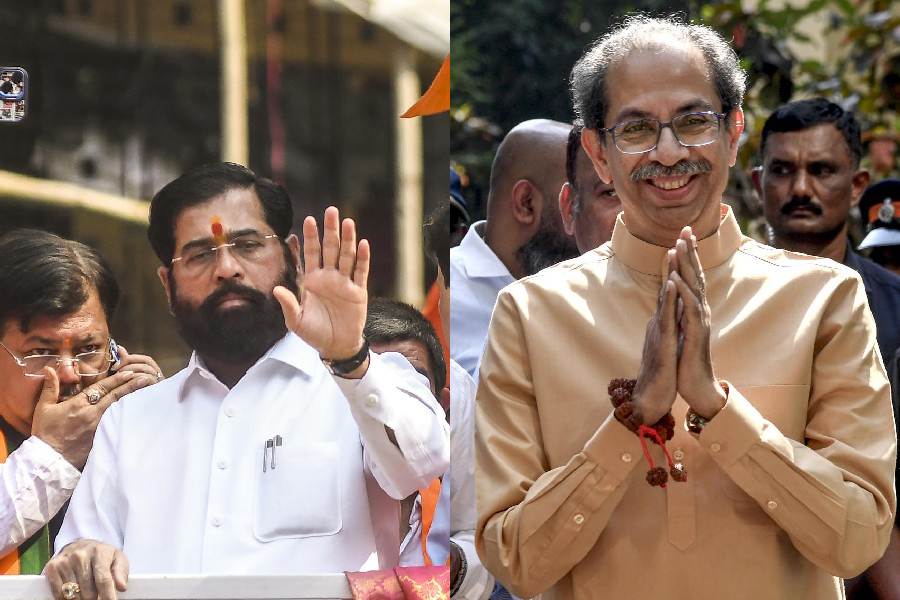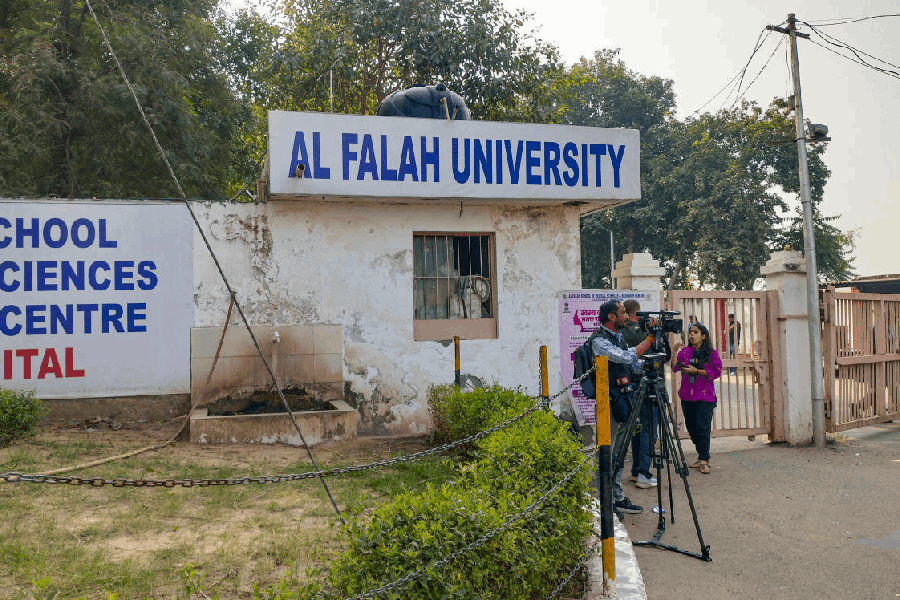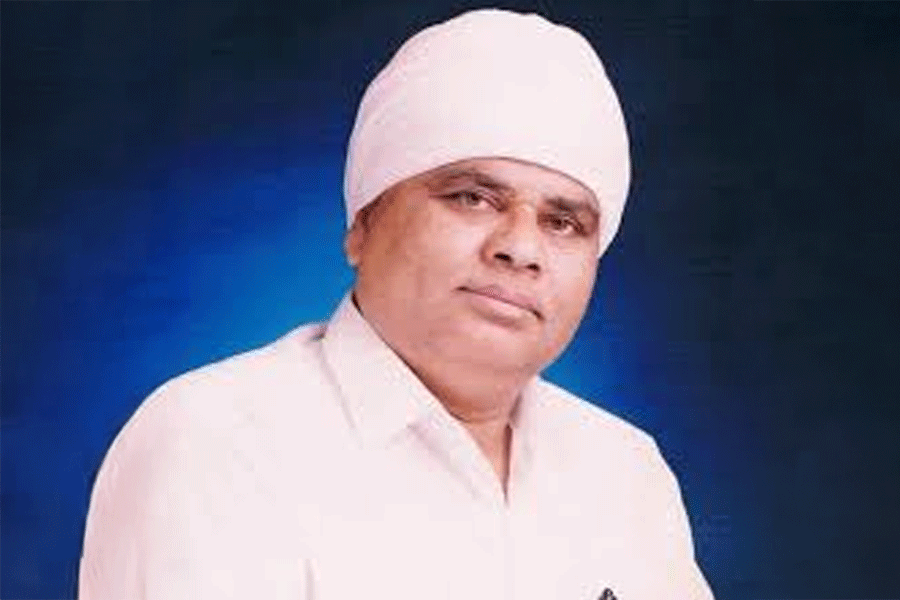 |
More than five decades ago, while walking home along the bank of the river Nona which flows between Nalbari and Rangiya in Lower Assam, a boy had awakened to the first stirrings of creativity. Resting in the shade of bogori trees on the white sands of the riverbank, thoughts and images were encapsulated into words that he had been too shy to express.
Three decades later, in 1970, that young boy, then 43 years old, swept the Assamese literary world off its feet with his first book, Ananya Prantor. It was hailed as an “exceptional, unique travelogue”.
A string of literary successes followed with Ferengadao, a book on Kalaguru Bishnu Rabha, Mahapurush Madhavdev, an inspirational work on Sankardev’s illustrious disciple, Jadugharar Kirtimukh, Taat Nadi Nasil, Nibandhita Anubhav, Luit, Barak aru Islam, Yangjoo Nadir Paar and Bipannay Samay among others.
Today, Medini Mohan Choudhury, master-narrator, who began his literary career by “putting a few verses to paper as outpourings of the heart”, is lost to the mortal world; only his narration stands witness to the flair of his powerful pen.
True to his conscience, to his observations and experiences, each novel, short story or essay that the Sahitya Akademi awardee wrote, compelled the reader to search for “the truth within and in his environs”.
Taat Nadi Nasil, for example. The ambience of the novel — born of memories of his own ancestral village near Goreswar in Kamrup district, his serene childhood and the turmoil of youth — was the backdrop for his contemplation on his own gamut of experiences of tribalism and disintegration.
Even Luit, Barak aru Islam, which Choudhury wrote during the surcharged times of the Assam agitation on the contribution of the Assamese Muslims to the state, a time when the latter lived in anxiousness within the state polity and society, reflected the courage of his convictions. Choudhury’s stories never took off on imaginative flights, always remaining grounded in reality — simple narrations about the many encounters in the journey of life.
Regardless of the accolades, Choudhury always strove to achieve perfection, which he often felt “eluded him”.
The journalist in the writer surfaced, but for a brief period. He had plunged into the adventurous world of journalism with a lot of enthusiasm, but financial compulsions forced him to join the Assam Civil Service in 1956. Besides, he also considered himself a failure as a journalist since many a time he was unable to remain “non-partisan on issues”.
Emerging from the shadow of dark childhood memories of “taunts for quoting Sanskrit shlokas despite being a Bodo boy”, Choudhury wrote Assamese literature, and shone, too, albeit never harbouring any rancour later for those embarrassing moments that had “hurt the soul”.
Objective, humane and intensely passionate about improving the lot of the underprivileged, Choudhury always said that he “followed his own heart, not any particular ideology”. A truly secular man, his persona remained till the end as natural as a flowing river and as fresh as dewdrops.

